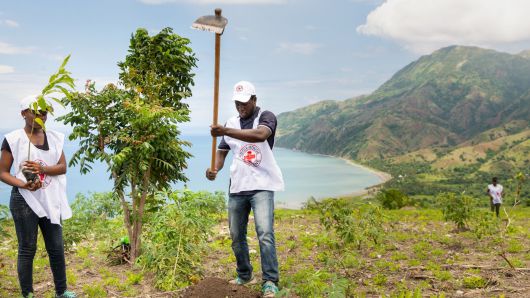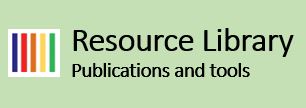25/10/2022 - Ecosystems crucial to reduce disaster risk

Part of this news item was earlier published on the UNEP website
How do we upscale Eco-DRR measures to achieve greater impact nationally and globally?
Following this question, the European Commission awarded a 3-year project (2019-2022) to UNEP and Partners for Resilience (PfR), focusing on the scaling-up of Eco-DRR models and promoting large-scale implementation in 5 key countries.
Ethiopia
The Eco-DRR project is implemented in the Liben and Fafan zones of the Somali Region in Eastern Ethiopia. The key risks being addressed within this context are droughts, flooding, and food insecurity. To address this, the project aims to enhance the resilience of communities to disasters and climate risks through the piloting and scaling up of Eco-DRR activities, reaching 44,000 vulnerable people in approximately 80 communities by the end of the project. Specifically, the project seeks to scale up integrated risk management and inclusive risk governance by supporting participatory ecosystem and community disaster risk assessments and action planning. In addition to the implementation of Eco-DRR measures, scaling up of Eco-DRR action, and promotion of citizen-based monitoring of disaster and climate resilient policies and practices.
Key partners: The Ethiopian Somali Region Environment and Climate Change Bureau/Zonal and Woreda offices, The Ethiopian Somali Region Disaster Prevention and Preparedness Bureau (DPPB)/ Zonal and Woreda offices, The Ethiopian Somali Region Agricultural and Natural Resource Bureau/Zonal and Woreda offices, Jigjiga University, Somali Region Meteorological Agency.
See: Case study, Results sheet, Success story

Haiti
The Eco-DRR project is implemented in Chardonnieres, Les Anglais, and Tiburon in the South district of Haiti. The key risks being addressed within this context are flooding, landslides, and food insecurity. To address this, the project aims to strengthen community resilience to disasters and climate change, through the adoption of demonstrated best practices by farmers and landowners in three municipalities. Specifically, the project seeks to strengthen integrated risk management and inclusive risk governance by supporting the development and scaling up of Eco-DRR actions and citizen-based monitoring of disaster and climate resilient policies and practices and mainstreaming youth engagement and gender considerations.
Key implementing partners: The Netherlands Red Cross, Haitian Red Cross, the local and regional government authorities.
See: case study, results sheet, success story, cost-benefit analysis

India
A major component of our Eco-DRR project in India takes place in the states of Odisha, Bihar, and Gujarat. Our project focuses on the restoration and protection of wetlands, rejuvenation of village ponds, and waterbody conservation. The project empowers Community-based Organisations to protect and improve wetlands ecosystems and water management with the goal of integrating Eco-DRR action plans into local government development plans and programmes.
Key Implementing partners: Wetlands International South Asia; International Federation of Red Cross and Red Crescent Societies (IFRC/Indian Red Cross), Sustainable Environment and Ecological Development Society (SEEDS), Pallishree and Panchayat Raj Institutions.
See: Case study, Results sheet, Success story, Cost-benefit analysis

Indonesia
Our Eco-DRR project is implemented in South Tapanuli District in Northern Sumatera. The key risk being addressed within this context is the fact that degraded peatlands are prone to fire and subsidence, and the latter results in prolonged flooding. To address this, the project aims to increase community resilience towards peat fire and peat subsidence, as well as enable sustainable development through the implementation of Eco-DRR practices in peatland ecosystems in Indonesia. Specifically, the project seeks to increase the adoption of Eco-DRR practices in peatland ecosystems that contribute to increasing community resilience.
Key Implementing partners: Wetlands International Indonesia, Village and sub-district authorities, police and military forces, district level authorities (Development Planning Agency), Disaster Management Agency, Agricultural and Fishery Agency), Provincial Development Planning Agency, National Development Planning Agency, Ministry of Environment and Forestry, National Disaster Management Agency, and Peat and Mangrove Restoration Agency.
See: Case study, Results sheet, Success story, Cost-benefit analysis
.jpg)
Uganda
Our Eco-DRR project is implemented in Otuke, Alebtong, Abim, Agogo, and Kotido Districts in Northern Uganda. The key risk being addressed within this context is frequent and prolonged droughts in upstream areas and flooding in midstream areas. To address this, the project aims to strengthen the resilience to drought and flooding of 160,000 vulnerable women and men in 5 districts of Eastern Aswa Catchment in northern Uganda. Specifically, the project seeks to scale up Integrated Risk Management (IRM) and inclusive risk governance through improved catchment-based water resources management that is risk-informed, gender- and ecosystem-sensitive.
Key Implementing partners: CARE Uganda, Wetlands International Eastern Africa, Facilitation for Peace and Development (FAPAD), Facilitation for Innovative Actions and Sustainable Development (FINASP), CARITAS Lira and CARITAS Kotido, National Forestry Authority (NFA), Ngetta Zonal Agricultural Research Institute (ZARDI).
See: Case study, Results sheet, Success story, Cost-benefit analysis

.jpg)




